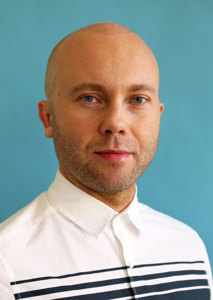
Patrick Strudwick
The i Paper
In 2017, before the story first broke in the US, Patrick began talking to actors in London about their experiences with Spacey. At the time, they were too afraid of their careers to speak out. Four years on, two were ready to talk, so Patrick began investigating their claims and approaching others who might now come forward. It led to the Channel 4 series ‘Spacey Unmasked’, which Patrick produced, and to this front-page exclusive interview with Ruari Cannon.
Mr Cannon had never told his story before and this sensitive interview – published the week before the films were broadcast – was conducted over a 7-year period giving an extraordinary insight into the effect of sexual violence on a man’s life, career, and mental health, particularly when the alleged perpetrator is a powerful public figure.
The sensitivity of Patrick’s writing combined with the strength of the story meant the allegations rang out across the world as more men spoke out. Media coverage ignited swiftly and globally. Hours after the Ruari Cannon interview was published, Spacey went on Dan Wootton’s show to defend himself, then on Piers Morgan’s show where he admitted being “too handsy”.
The second story is an investigation into therapists who’ve been struck off but who, Patrick discovered, continue to practice. By finding the documents relating to misconduct cases, searching out the therapists involved, and posing as a patient seeking psychotherapy, Patrick was able to expose some of the most egregious examples of therapists slipping through the net due to the lack of statutory regulation. These included therapists giving patients drugs, exploiting them sexually, and even moving them into their marital homes under the guise of Christian counselling.
The story exposed the key issue that without regulation anyone can set themselves up as a therapist or continue in the field regardless of wrongdoing – and despite how vulnerable their patients are. The investigation led to politicians and public figures speaking out in support of regulation, including Alastair Campbell and Ruby Wax, and led to follow-up scoops by Patrick including a GP struck off for sexual misconduct who had simply re-surfaced as a therapist under a different name.
The third piece is an epic exploration of Dissociative Identity Disorder (previously known as multiple personality disorder), one of the least understood and most stigmatised mental illnesses. With unprecedented access to one of the only specialist clinics that treats it, Patrick was able to not only tell the stories of two people affected by the condition, but also expose the numerous failures by the NHS to provide proper treatment for this terrifying illness. The result is a definitive account of the early abuse that sparks D.I.D and the complex reality of living with it while seeking help.